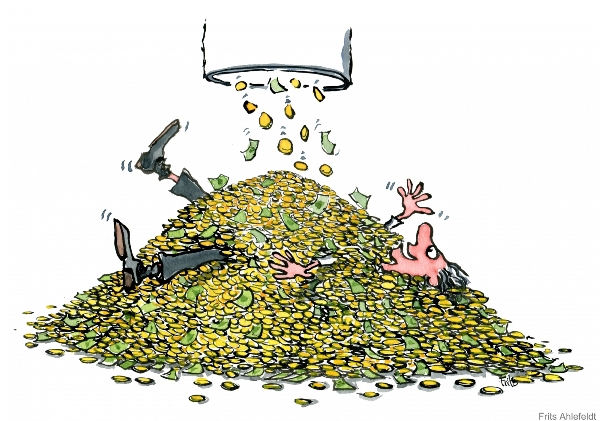As we watch another year of our life passing by, most people in their late 30s and early 40s might be thinking of retiring early. All of us fancy getting out of the rat race sooner than later but just can’t decide, if we should take that next step. We get into decision paralysis because we are not sure that what we have saved is enough to sustain our lives through the years. I thought of addressing that question in today’s topic “How much money is really enough?”.
FIRE – Financial Independence, Retire Early
Born out of a 1992 best-selling book, “Your money or Your life”, it became popular among many Americans, especially NewYorkers. The book compares every expense to the time spent at work in order to earn that purchase thereby juxtaposing time spent at work against hours of your life. The concept is based on extreme savings (about 70% of proponent’s annual income) until you hit a million-dollar (INR 6.2Cr) target by investing into low cost index funds.
Most people who proudly practice FIRE say, that living frugally to save most of the income has become part of their lives. They started focusing on happiness instead of upgrading their purse.
The 4% Rule
Another interesting concept among Americans is the 4% rule. If you can live with 4% of the total corpus every year, you can think of retiring. That means, if you can save and invest to get to a corpus which is 25 times of your annual expense, that should be enough to sustain through the life.
If your annual expense adds up to 12 lakhs, then you need 3 Cr to retire according to this rule.
Do it yourself

Use an excel sheet and try your own numbers. Who knows, you might be able retire next week. 😊
The final result (Cr) is the present value (PV) of all future cash flows increasing at a rate of inflation. Post retirement years (Yp) is the number of years from the day you retire to the day you rest in peace. Taking a life expectancy that is less than 80 could land you in trouble. For a 50 year old, Yp=30 is okay but not for a 30 year old. So be careful while playing with the numbers. If you are determined to reduce your expenses, the corpus can sustain for a longer time.
Some life hacks
Here are some life hacks that you can think of when you decide to end the rat race.
- Go green. Start peddling and stop/limit accelerating.
- Move to a smaller city, if you like adventure.
- Don’t ever borrow money. Debt can kill any plan.
- Stop using credit cards. Deal in cash to avoid mental accounting.
- Cancel TV service. Instead spend time with the family, friends.
- Use all the coupons that you can get. Look for cheaper options when go grocery shopping.
- Teach your kids to be self-sustaining instead of pampering. They’ll learn from you.
- Learn about plumbing, electrical fixes and carpentry yourself. Use your body. After all, you got time.
- Practice optimism.
- Last but not the least, focus on happiness and the time you have to spend with your family.
All is well?
Yes and No. It can be done, if you set your mind to it but there are things that you just cannot ignore.
- Medical expenses: Sky rocketing medical expenses and bad doctors are a big risk. Having a critical illness after retiring early can drain your retirement corpus pretty quickly. Plan for a good medical cover with lowest co-payment clause with added critical illness rider. Go through the plan document to understand what is covered and what is not.
- Education: This is a booming business with soaring expenses. Education isn’t supposed to be a business but unfortunately it is. You will get them through the college but prepare them to take care of themselves to fulfill their life aspirations.
- Inflation: Keep an eye on this to avoid any collateral damage. In a developed economy, the inflation swings are comparatively smaller and it may not impact the year on year expenses. But in a developing economy like India, inflation should be watched closely. 7% is a decent number to project.
Retirement doesn’t mean you have to stop working
Retiring early will give you a chance to explore your passion. There are real payoffs of working on your passion and it isn’t always financial. Working will make you feel relevant, helps you make new friends and keeps your brain in shape. It also counters the social isolation that can be detrimental for good health. It may not be a good idea to retire, if you have no idea, what you’ll do after you leave the job.
The bottom line is that finding the right work that you love in your retirement years might be challenging but rewarding. There is always a way out. You just need to find it.
Good luck.



0 Comments